Brazil nuts (Bertholletia excelsa) are large nuts native to South America, and they offer some impressive nutrition benefits.
However, these nuts also have some potential side effects.
This guide examines the nutrition profile, benefits, and drawbacks of Brazil nuts in full.
What Are Brazil Nuts?
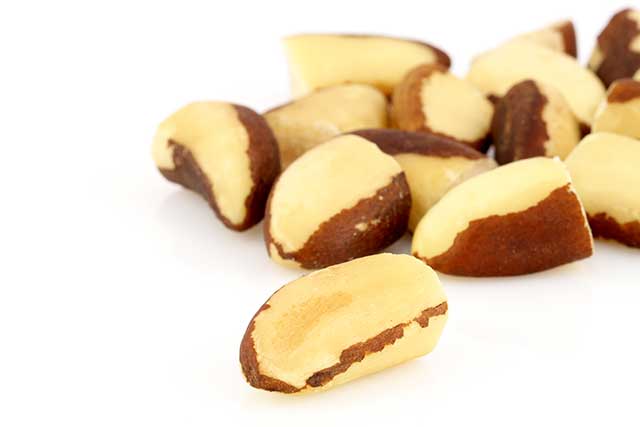
Brazil nuts are known for being the largest of the common varieties of nuts.
Despite this, Brazil nuts are actually the edible seeds of a fruit imaginatively named the Brazil nut fruit.
This fruit somewhat resembles the shape and appearance of a coconut, weighing approximately two kilograms, with a hard-shell exterior.
The fruit contains Brazil nuts inside, all of which are within individual shells.
As for the origin of Brazil nuts, they come from South America, and they can be found in countries such as Brazil, Bolivia, and Venezuela.
Brazil nut trees are prevalent within the Amazon rainforest, and the trees are famous for their incredible height, reaching heights of around 160 feet (1).
Nutritionally, Brazil nuts are best known for the incredible concentrations of selenium that they contain.
Nutrition Facts
The nutrient values below show the full nutrition profile of Brazil nuts per typical one-ounce (28-gram) serving and per 100 grams (2).
| Calories/Nutrient | Per Serving | Per 100g |
|---|---|---|
| Calories | 184 kcal | 656 kcal |
| Carbohydrate | 3.4 g | 12.3 g |
| – Fiber | 2.1 g | 7.5 g |
| – Sugars | 0.7 g | 2.3 g |
| Fat | 18.6 g | 66.4 g |
| – Saturated Fat | 4.2 g | 15.1 g |
| – Monounsaturated Fat | 6.9 g | 24.6 g |
| – Polyunsaturated Fat | 5.8 g | 20.6 g |
| – Omega-3 | 5 mg | 18 mg |
| – Omega-6 | 5758 mg | 20564 mg |
| Protein | 4.0 g | 14.3 g |
Brazil nuts are primarily a source of dietary fat, mainly unsaturated fatty acids.
However, unlike nuts such as walnuts, they contain very little omega-3.
The nuts also offer around four grams of protein per serving. Additionally, the majority of the carbohydrate in Brazil nuts is fiber.
| Vitamin | Per Serving | Per 100g |
|---|---|---|
| Vitamin B1 | 12 % DV | 41 % DV |
| Vitamin E | 8 % DV | 29 % DV |
| Folate | 2 % DV | 5 % DV |
| Vitamin B6 | 1 % DV | 5 % DV |
| Vitamin B2 | 1 % DV | 2 % DV |
| Vitamin B5 | 1 % DV | 2 % DV |
| Vitamin C | Trace | 1 % DV |
| Vitamin B3 | Trace | 1 % DV |
Brazil nuts offer a good source of vitamins B1 and E and smaller amounts of several other vitamins.
| Mineral | Per Serving | Per 100g |
|---|---|---|
| Selenium | 767 % DV | 2739 % DV |
| Magnesium | 26 % DV | 94 % DV |
| Copper | 24 % DV | 87 % DV |
| Phosphorus | 20 % DV | 73 % DV |
| Manganese | 17 % DV | 61 % DV |
| Zinc | 8 % DV | 27 % DV |
| Potassium | 5 % DV | 19 % DV |
| Calcium | 4 % DV | 16 % DV |
| Iron | 4 % DV | 13 % DV |
| Sodium | Trace | Trace |
Brazil nuts are an excellent source of minerals, and they contain a substantial amount of selenium.
Additionally, the nuts offer a good supply of magnesium, copper, phosphorus, and manganese.
In fact, Brazil nuts (closely followed by pili nuts) offer more magnesium than any other nut.
Benefits of Brazil Nuts
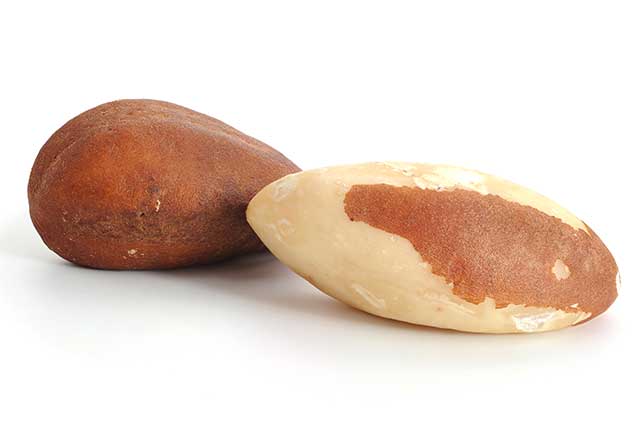
First of all, Brazil nuts contain a range of compounds that may benefit our health.
In addition to this, scientific studies show some further benefits of the nuts.
Here is a review of the positive ways these Brazil nuts can affect our health.
1) The World’s Best Source of Selenium
Selenium is an essential antioxidant mineral, and it has several important functions within the human body.
Among these benefits, selenium may help to improve the body’s antioxidant defense system and lower inflammation (3, 4).
On the positive side, no other food comes close to the amount of selenium that Brazil nuts provide.
Offering more than 767% of the reference daily intake per ounce serving, Brazil nuts are a significant source of the mineral (2).
Since an average sized Brazil nut weight approximately five grams, just one nut offers more than 100 % of the RDI for selenium.
2) Brazil Nuts Improve the Lipid (Cholesterol) Profile
Numerous studies have shown that Brazil nuts may benefit cardiovascular health by improving the cholesterol profile.
On this note, recent human trials have demonstrated that;
- In a randomized trial, a serving of 20g and 50g (but not 5g) of Brazil nuts lowered LDL levels and raised HDL levels. The ratio of HDL cholesterol to non-HDL cholesterol is a potential marker of cardiovascular health, and higher amounts of HDL are beneficial (5, 6).
- A further randomized controlled trial supplemented 89 patients with dyslipidemia and hypertension with 13 grams of Brazil nut flour per day for 90 days. Following the 90 days, participants had higher HDL levels, lower LDL, and increased blood selenium levels (7).
3) Brazil Nuts May Improve Thyroid Function
The thyroid is a gland at the front of the lower neck that is responsible for producing important hormones.
These hormones are;
- Triiodothyronine (T3)
- Thyroxine (T4)
T3 and T4 hormones have numerous crucial functions, and they have a regulating effect on our body’s metabolism. As part of this, these thyroid hormones affect how our brain and cardiovascular, digestive, muscular, and nervous systems all work (8, 9, 10).
On this note, research suggests that selenium plays a critical role in the healthy functioning of the thyroid gland as well as in preventing thyroid disease (11, 12).
Notably, an intervention trial showed that supplementation with Brazil nuts improves thyroid levels in patients with selenium deficiency (13).
4) Source of Vitamin E

Vitamin E is a fat-soluble vitamin that plays a crucial role in our health.
For one thing, the vitamin has antioxidant properties, and studies show that it may reduce oxidative stress (14, 15).
As part of this, some studies suggest that vitamin E can help to prevent LDL oxidation, which is thought to play a role in atherosclerosis (the formation of arterial plaque) (16, 17).
There are also reasonably strong inverse associations between dietary vitamin E intake and the risk of heart disease.
In a study of 39,910 US male health professionals with four years of follow-up, dietary vitamin E intake was strongly associated with a lower risk of coronary disease (18).
(Note: this is an association, and it does not signify that vitamin E was the cause).
A typical serving of Brazil nuts offers 8% of the RDI for vitamin E.
For the best nut source of vitamin E, see this guide to almonds.
5) Brazil Nuts May Improve Cognitive Performance
There is some evidence that Brazil nuts may improve cognitive performance in older adults.
In a randomized controlled trial featuring 31 older adults, one Brazil nut per day for 6-months led to improvements in verbal fluency as well as increasing selenium levels (19).
However, in another study of 154 older adults, no association was found between selenium levels and cognitive performance (20).
There is very little research other than this, and more in-depth studies are necessary to prove a link.
6) Rich In Polyphenols
Brazil nuts are a rich source of polyphenols, and they contain a range of flavonoids and phenolic acids (21).
Polyphenols have several potential benefits, but the bioavailability of many of these compounds is a subject of debate (22, 23).
That said, randomized controlled trials in human participants suggest that flavonoids and phenolic acids may have cardiovascular benefits.
For instance, several studies show that flavonoid-rich foods may improve endothelial function and lower blood pressure and markers of inflammation (24, 25, 26).
7) Brazil Nuts May Improve Markers of Oxidative Stress
Another potential benefit of Brazil nuts is that they appear to lower markers of inflammation.
There are several studies in this area, and they show that consuming the nuts may lower oxidative stress.
In one study, consuming one Brazil nut per day for three months reduced markers of oxidative stress in hemodialysis patients (27).
Also, in a randomized controlled trial, 3-5 Brazil nuts per day for 16 weeks improved microvascular function and “significantly reduced” levels of oxidized LDL in obese adolescents (28).
Potential Side Effects of Brazil Nuts
Although Brazil nuts are a healthy and nutritious nut, it is important to be aware of their major potential side effect.
Overconsuming Brazil nuts may cause selenium poisoning (selenosis).
Selenium poisoning is a potential issue because the nuts contain 2739% of the RDI per 100 grams.
In a worst-case scenario, there have also been several reported deaths from selenium poisoning (32, 33).
Remember; just one Brazil nut contains more than 100% of the RDI for selenium, and regular large portion sizes can be harmful.
How Many Brazil Nuts Should We Eat Per Day?
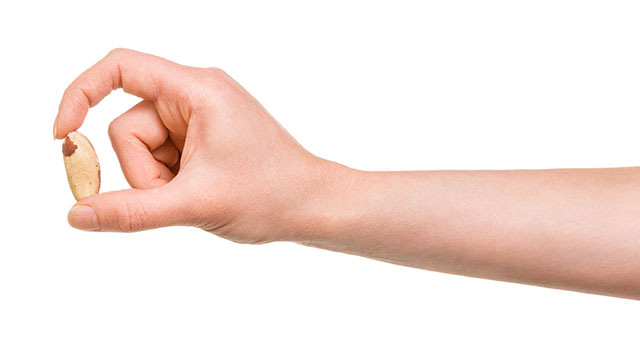
While there are no exact guidelines on this issue, looking at the tolerable upper limits of selenium can give us an indication.
According to the National Institutes of Health, the upper daily limit for selenium is 400 mcg for adults (31).
The USDA Food Composite Database lists an average Brazil nut as containing 95 mcg of selenium (2).
In other words; in the absence of other dietary sources of selenium, around four Brazil nuts per day would be the limit.
However, the RDI for selenium (55 mcg) is much lower than the tolerable upper limit, and just one nut more than meets this requirement (34).
For anyone consuming Brazil nuts specifically for their selenium content, one nut per day provides a sufficient amount.
Final Thoughts
Brazil nuts are an excellent source of nutrition, and they offer some key nutrients like selenium, magnesium, and vitamin E.
Overall, adding a small amount of Brazil nuts to our diet is a healthy way to meet selenium requirements.
In addition to the proven benefits of Brazil nuts, they may also have positive impacts on our cardiovascular and cognitive health.
For more on nuts, see this guide to the benefits of pine nuts.

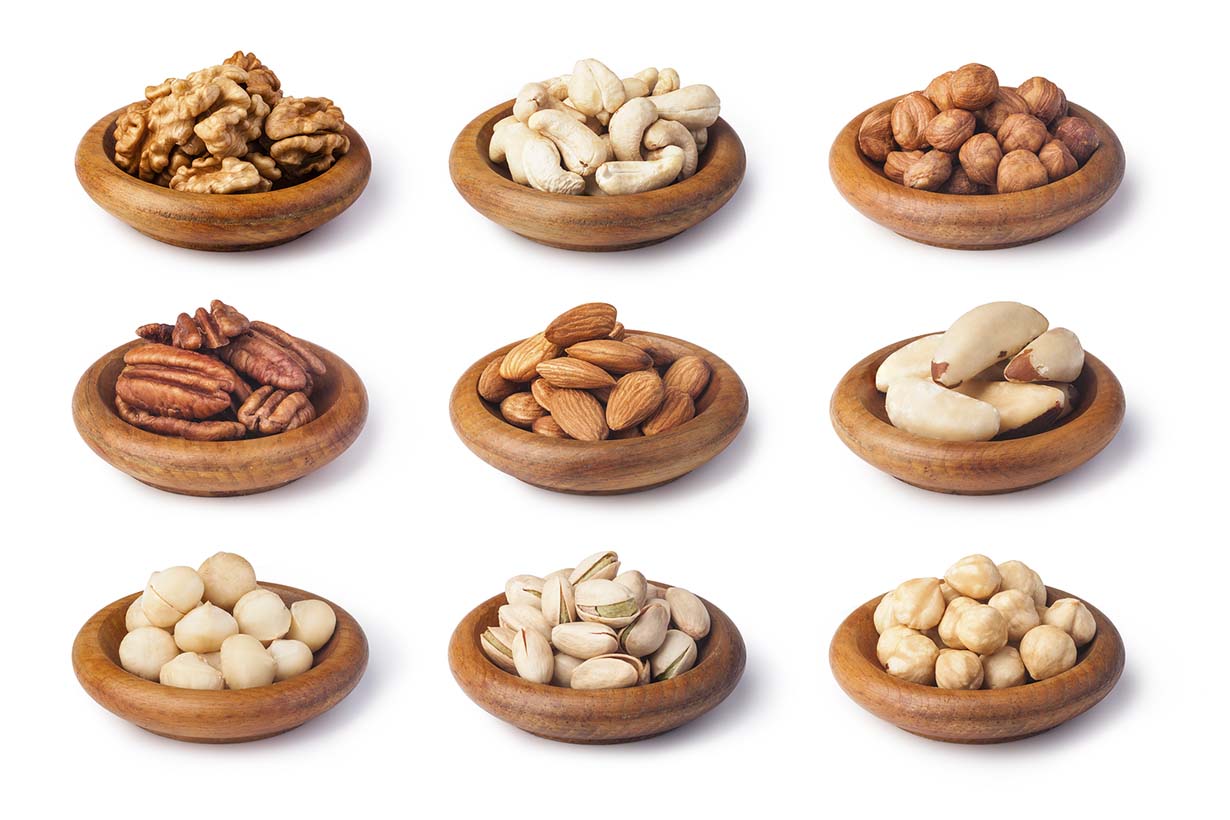
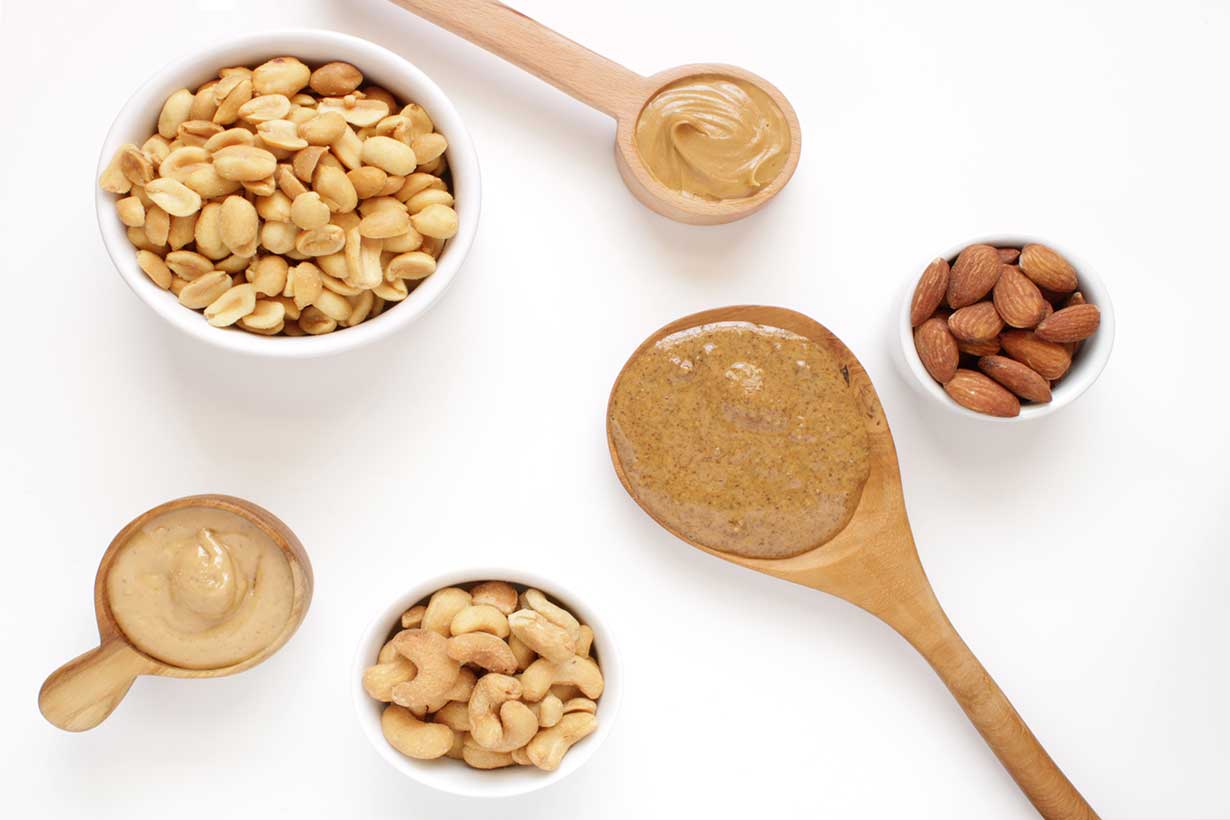
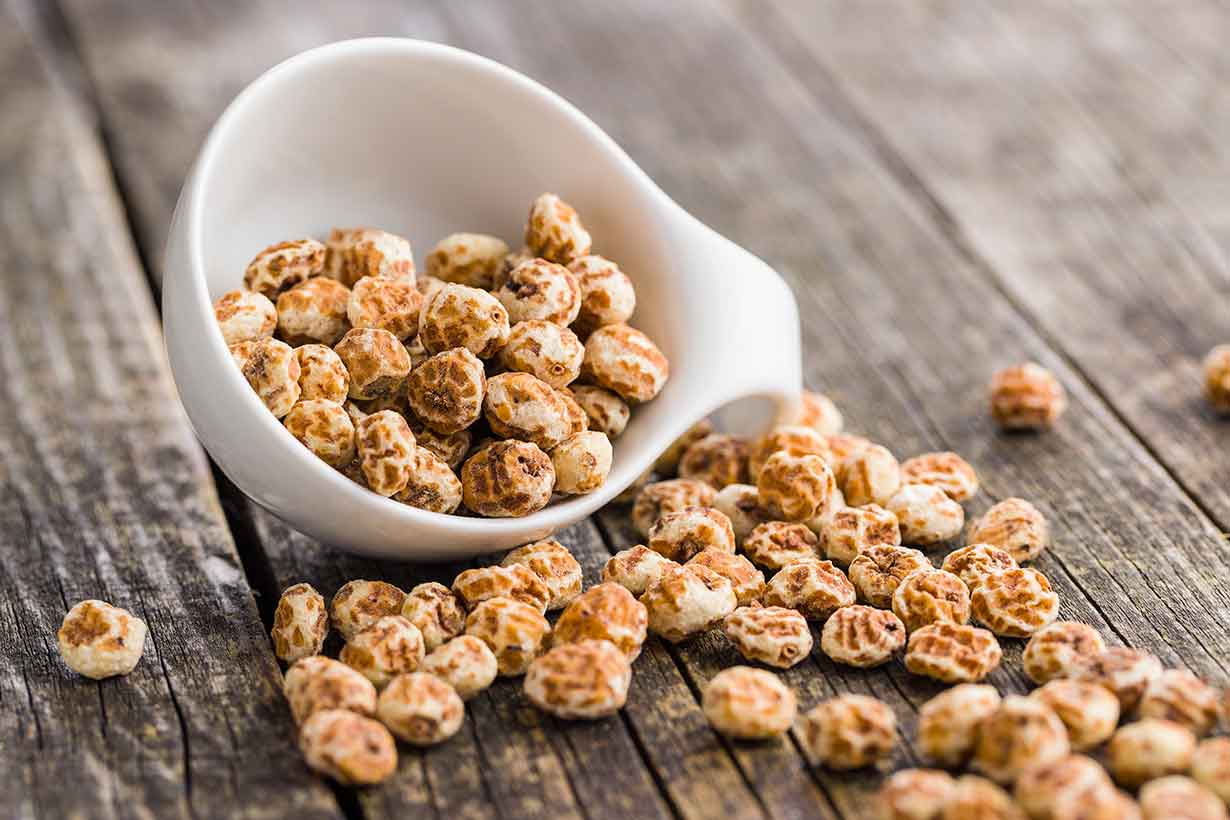
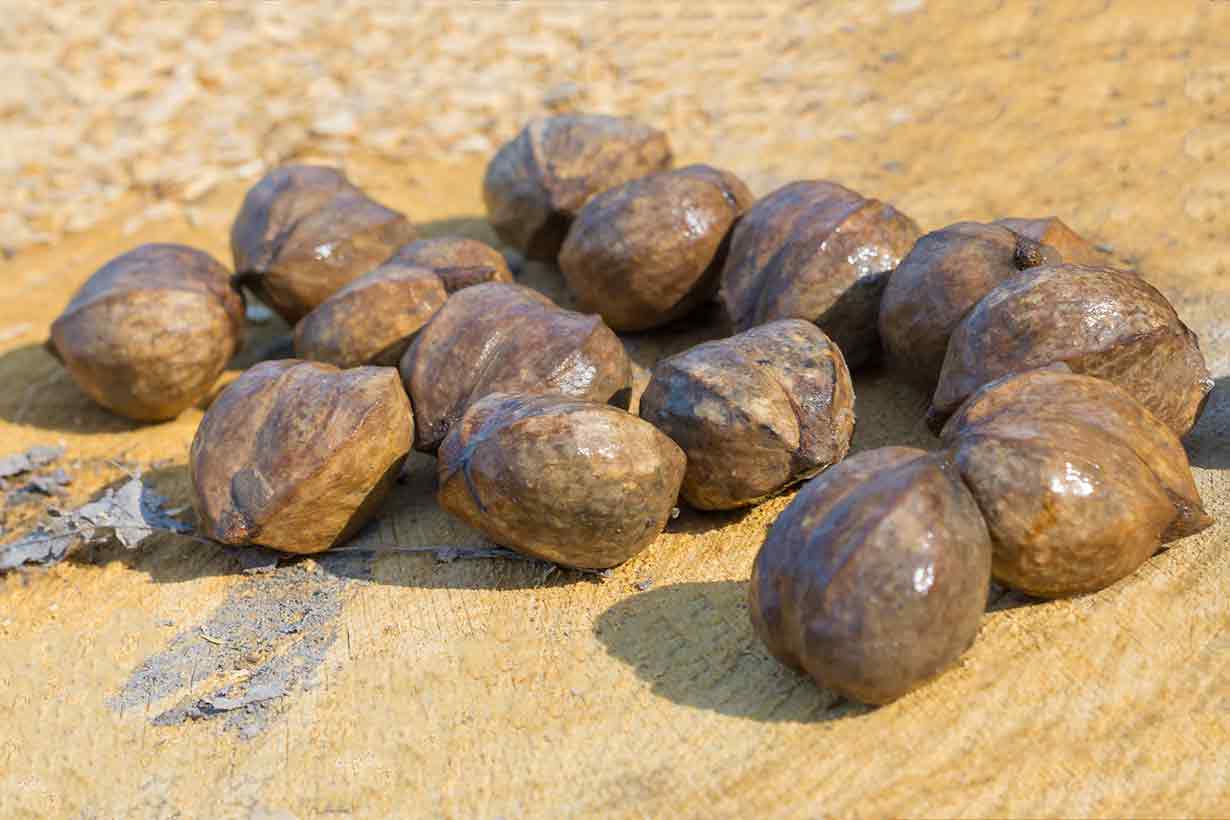


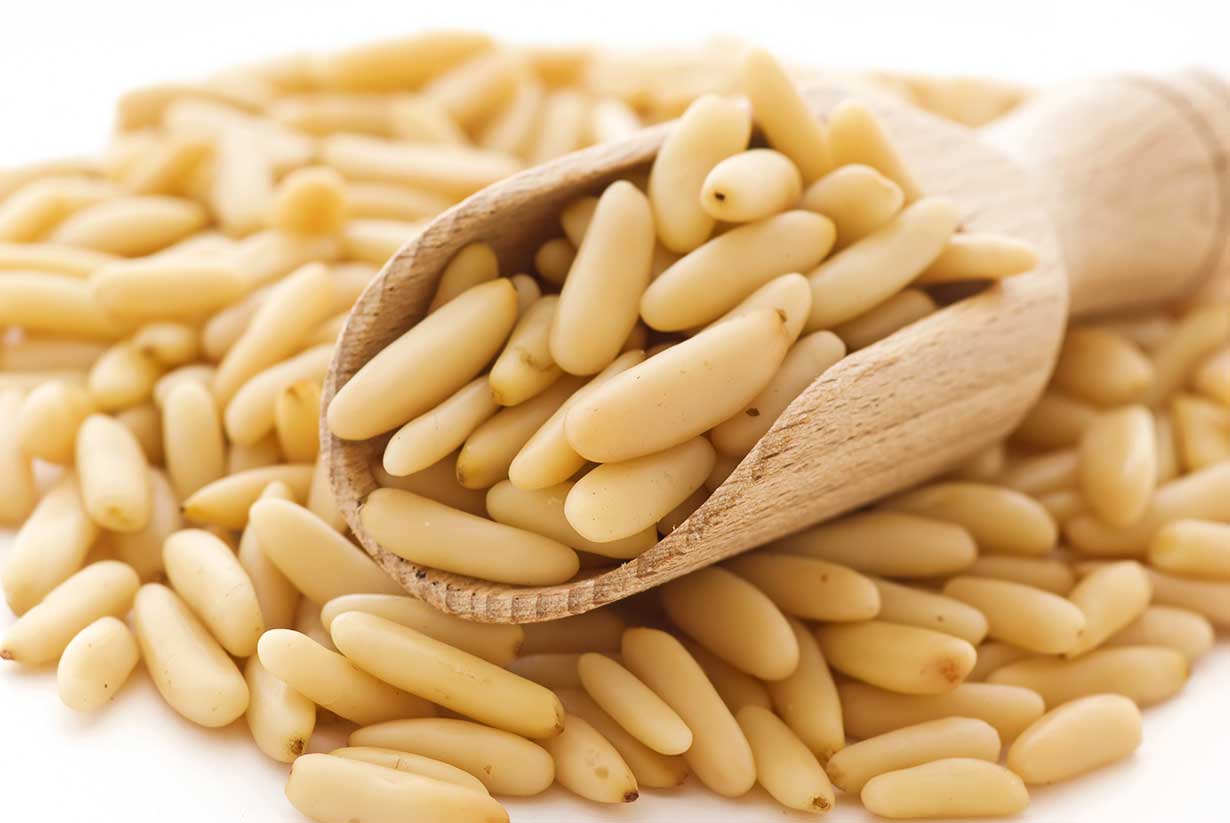
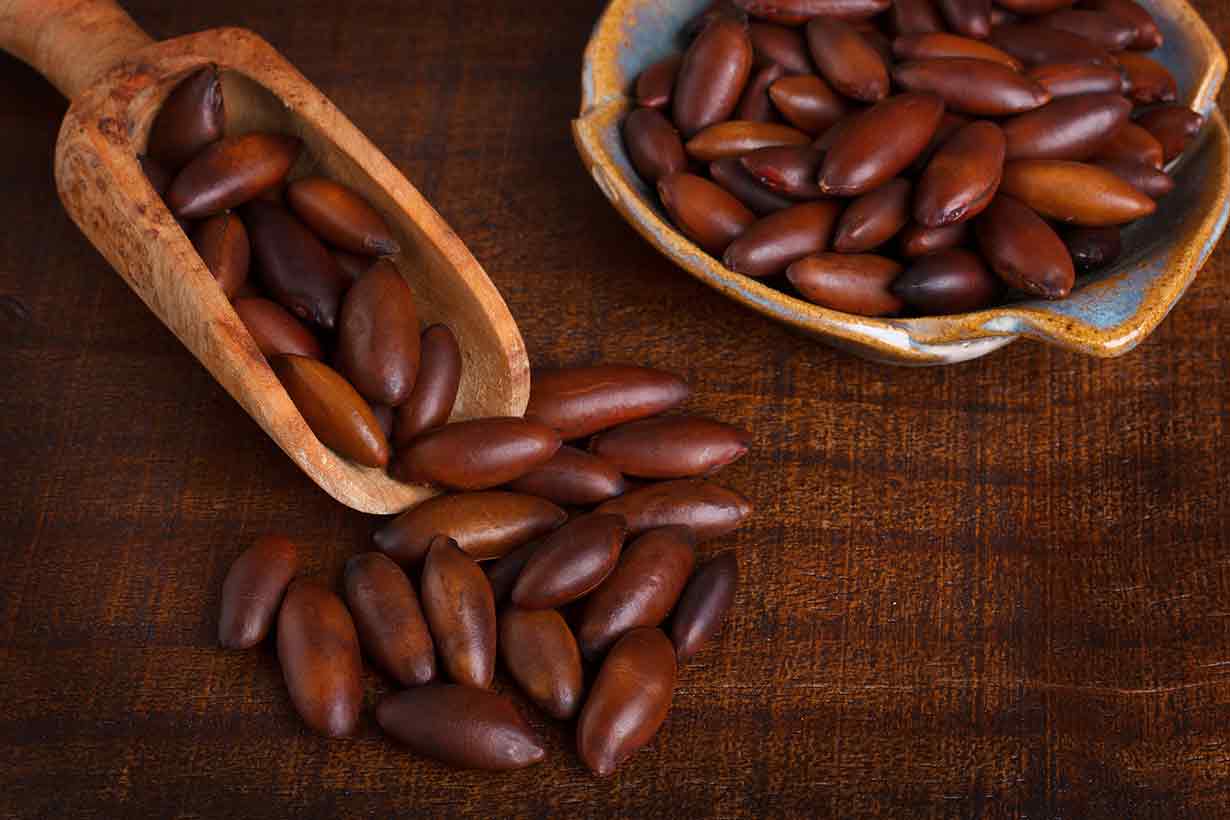
Great article! Very complete about the brazil nuts!
Thanks, Castanha!